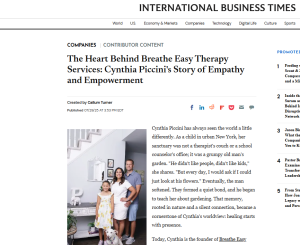The Covid-19 pandemic tested all of us. Parents juggled virtual school while trying to maintain work commitments. Everyone was worried about family members with fragile health. Maintaining quarantine while climbing the walls weighed heavily upon us all. Many couples cleaved together through the tumult that was the hallmark of 2020 yet others found their strategies for maintaining their relationships significantly lacking (Estlein et al., 2022).
No relationship is perfect, of course. Research shows time and again that couples who actively support their partnership are more likely to experience higher levels of satisfaction and contentedness (Lucier-Greer et al., 2018).
Indeed, studies prove couples with solid foundations weather storms like the Covid-19 pandemic. For instance, Estlein et al. (2022) write that successful teams used the time at home to reestablish relationships that the day-to-day grind had sidelined. While these couples saw conflict, they had strategies to cope and come out the other side together and stronger for it.
As couples reenter life post-pandemic, many are falling back into routines and finding the same barriers to maintaining healthy relationships that plagued them previously. Those stressed by work and other commitments find it hard to make time for their loved ones and feel unfulfilled by their relationships. For many, time together can be just what the doctor orders to rekindle dwindling partnerships.
Research shows that healthy couples have similar skills and behaviors, and among these are making time for one another. It may not always be easy, but it will happen if you’re committed to making it work. Continue below for a few tips for planning successful connections with your partner.
- Commit: Make a date and keep it! You’ll show dedication to your relationship’s success
- Engage: Show up for your partner when you’ve scheduled time together and actively listen.
- Ditch the Electronics: Silencing your phone can go a long way to showing your partner you care
- Eye Contact: It can be simple yet effective when you’re together!
- Find time: Having a standing coffee “date” each morning, running errands, or working out together are excellent ways to bond while getting things done
For more information on relationships and couples, contact Breathe Easy Therapy Services here
Resources
Eastwick, P. W., Keneski, E., Morgan, T. A., McDonald, M. A., & Huang, S. A. (2018). What do short-term and long-term relationships look like? Building the relationship coordination and strategic timing (ReCAST) model. Journal of Experimental Psychology: General, 147(5), 747–781. https://doi.org/10.1037/xge0000428.supp (Supplemental)
Estlein, R., Gewirtz-Meydan, A., & Opuda, E. (2022). Love in the time of COVID-19: A systematic mapping review of empirical research on romantic relationships one year into the COVID-19 pandemic. Family Process, 61(3), 1208-1228. https://doi.org/https://doi.org/10.1111/famp.12775
Gordon, Sherri. (2022) The Quality Time Love Language and Your Relationship. https://www.verywellmind.com/quality-time-love-language-4783540#toc-how-to-give-your-partner-quality-time
Lucier-Greer, M., Birney, A. J., Gutierrez, T. M., & Adler-Baeder, F. (2018). Enhancing Relationship Skills and Couple Functioning with Mobile Technology: An Evaluation of the Love Every Day Mobile Intervention. Journal of family social work, 21(2), 152–171. https://doi.org/10.1080/10522158.2017.1410267





